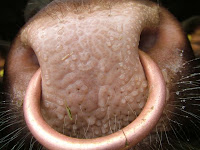.

Browsing Meg Lambert's blog I found
this comment from somebody who signed themselves "Anonymous":
You might note that importing and collecting unprovenanced coins is not only tolerated, but encouraged in both Cyprus and China (as well as Italy and Greece). The only difference in Cyprus and Greece at least is that you need to be a registered collector to do so-- and who is registered? The connected few of course. If collecting provenanced material is such a great idea, why don't these countries require of their own citizens what they ask State to impose on US collectors?
What is the matter with these people? Where do they leave their brains when they start to write about coin collecting?
This is what I answered:
"Anonymous" is afraid to put his or her real name under the post, and quite rightly so. "Anonymous" knows he or she is NOT telling the truth when he saying that "Cyprus, China, Italy and Greece" require the US to stop "collecting unprovenanced coins".
First of all the MOUs in question [for we are talking about the Convention of Cultural property Implementation (sic) Act] only regulate IMPORT, not internal circulation and consumption.
Secondly, the decisive factor is (of course as anybody fule wot can read would know) NOT whether a coin is "provenanced" but whether it is legally EXPORTED. In the same way as the UK has the PAS to record provenance, and an export licensing system to govern (duh) export. They are of course completely separate things to any straight-thinking person.
So I really do not know whether "Anonymous" is doing this deliberately or simply does not know what he or she is talking about, but the fact they did not want to use their real name here suggests that he or she is aware of one or the other. I bet they collect dug-up coins, yes?
The four countries mentioned are all states party to the 1970 UNESCO Convention, so do not in any way "encourage import" of illegally exported coins or any other antiquities. Article 3 of the convention defines such items as "illicit". The United States is one of the few countries which is a state party (one among 120) which does not honour this part of the Convention in its "implementing" legislation. Perhaps it is time it did.
I really do wonder what their problem is. The CCPIA is not an easy text to read as a piece of prose, but its not
actually all that difficult, and there is not in fact
all that much content to it (it is also a piece of junk as legislation). But time and time again we find that instead of reading it carefully for themselves they are relying on somebody to tell them what it says, and the "somebody" who does that are the dealers who apparently have a vested interest in believing it says and means something different from what it actually does say and mean. Even though the collectors eventually find out they were lied to (again) by the dealers, they believe the next lie, and the next one. Why? What is behind this extraordinary phenomenon?
 Browsing Meg Lambert's blog I found this comment from somebody who signed themselves "Anonymous":
Browsing Meg Lambert's blog I found this comment from somebody who signed themselves "Anonymous":




.jpg)






No comments:
Post a Comment